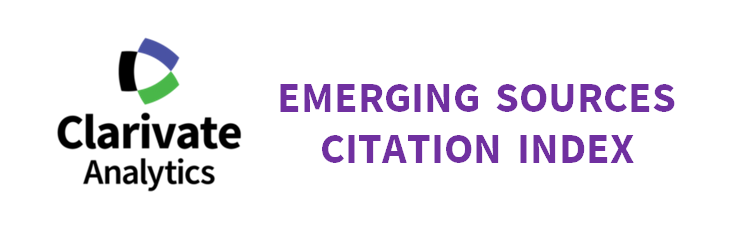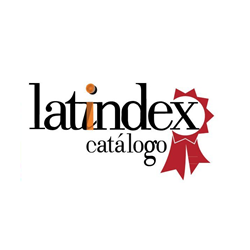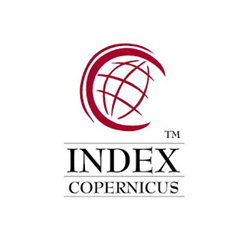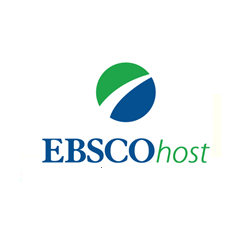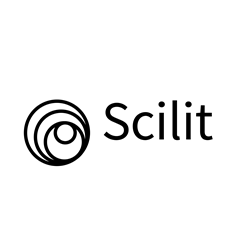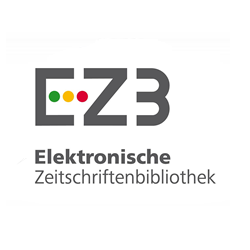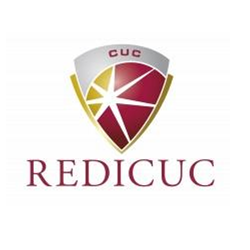Framework for elicitation of interoperability requirements in the context of organizational systems
DOI:
https://doi.org/10.17981/ingecuc.16.2.2020.19Keywords:
organization, organizational systems, elicitation, business, interoperabilityAbstract
Introduction— Within requirements elicitation, stakeholders generally fail to articulate interoperability requirements (IR) according to business needs, because organizations focus on technical aspects of solutions instead of systematically conducting a holistic analysis of the interoperability and its relationship with aspects of the business. Objective: Describe a framework that guides from the business perspective, the capture and specification of IR that can occur between the systems that make up the processes of an organization.
Methodology— The action research method was used to define and apply each of the components of the proposed framework based on four research cycles and three problem-solving cycles in which the case study technique was applied.
Results— The framework is made up of four components, a set of heuristics to identify IR, a model that describes the attributes that constitute interoperability at the business level, a process that guides the capture of IR, and a guide to specifying IR. On the other hand, IR from a business perspective is proposed as a starting point for the development of the aspects that must be addressed at the lower levels of interoperability corresponding to processes, services and data.
Conclusions— Through three case studies, the experiences in the application of the proposal in two organizations are described. Initial results show that the framework is useful, practical and appropriate for addressing IR elicitation.
Downloads
References
N. Daclin, D. Chen & B. Vallespir, “Developing enterprise collaboration: a methodology to implement and improve interoperability,” Enterp Inf Syst, vol. 10, no. 5, pp. 467–504, 2016. http://doi.org/10.1080/17517575.2014.932013
H. Panetto, M. Zdravkovic, R. Jardim-Goncalves, D. Romero, J. Cecil & I. Mezgár, “New perspectives for the future interoperable enterprise systems,” Comput Ind, vol. 79, pp. 47–63, 2016. https://doi.org/10.1016/j.compind.2015.08.001
BS ISO/IEC 25010, Systems and software engineering. Systems and software quality requirements and evaluation (SQuaRE), BS, British Standards Institution, UK, 2011. https://doi.org/10.3403/30215101u
R. Rezaei, T. K. Chiew, S. P. Lee & Z. Shams Aliee, “Interoperability evaluation models: A systematic review,” Comput Ind, vol. 65, no. 1, pp. 1–23, Jan. 2014. http://doi.org/10.1016/j.compind.2013.09.001
K. Cenci, E. Estevez & P. R. Fillottrani, “Facilitating Data Interoperability in Science and Technology: A Case Study and a Technical Solution,” presented in 18th Annual International Conference on Digital Government Research, dg.o '17, NY, USA, Jun. 2017, pp. 407–415. https://doi.org/10.1145/3085228.3085291
BS EN ISO 11354-1, Advanced automation technologies and their applications. Requirements for establishing manufacturing enterprise process interoperability. Framework for enterprise interoperability, BS, British Standards Institution, UK, 2011. https://doi.org/10.3403/30185800U
R. Motta, K. Marçal & G. Horta, “Rethinking interoperability in contemporary software systems,” presented in VI Brazilian Symposium on Computing Systems Engineering, SBESC, Bs As, Arg, 23-23 May 2017, pp. 9–15. https://doi.org/10.1109/jsos.2017.5
R. Motta, K. Marçal & G. Horta, “Characterizing Interoperability in Context-aware Software Systems,” presented in Computing Systems Engineering, SBESC, João Pessoa, BR, 1-4 Nov. 2016, pp. 203–208. https://doi.org/10.1109/sbesc.2016.039
N. Daclin, S. M. Daclin, V. Chapurlat & B. Vallespir, “Writing and verifying interoperability requirements: Application to collaborative processes,” Comput Ind, vol. 82, pp. 1–18, Oct. 2016. http://doi.org/10.1016/j.compind.2016.04.001
H. Abukwaik & D. Rombach, “Software Interoperability Analysis in Practice: A Survey,” presented in 21st International Conference on Evaluation and Assessment in Software Engineering, EASE, NY, USA, Jun. 2017, pp. 12–20. https://doi.org/10.1145/3084226.3084255
B. Kitchenham, “Procedures for performing systematic reviews,” Keele University, Keele, UK, NICTA Technical Report 0400011T.1, 2004.
A. Grilo, R. Jardim-Goncalves & V. Cruz-Machado, “A framework for measuring value in business interoperability,” 2007 IEEE Int Conf Ind Eng Eng Manag, IEEE, SG, 2-4 Dec. 2007, pp. 520–524. https://doi.org/10.1109/ieem.2007.4419244
M. M. E. Alemany, F. Alarcón, F. C. Lario & R. Poler, “Conceptual Framework for the Interoperability Requirements of Collaborative Planning Process,” in Enterp Interoperability IV, K. Popplewell, J. Harding, R. Poler, R. Chalmeta (eds), LD, UK: Springer, 2010, pp. 25–34. http://doi.org/10.1007/978-1-84996-257-5_3
C. Legner & K. Wende, “Towards an excellence framework for business interoperability,” presented in 19th Bled eConference, eValues, Bled, SL, 5-7 Jun. 2006, pp. 1–16. Available: https://aisel.aisnet.org/bled2006/29
S. Blanc-Serrier, Y. Ducq & B. Vallespir, “Organisational interoperability characterisation and evaluation using enterprise modelling and graph theory,” Comput Ind, vol. 101, pp. 67–80, 2018. https://doi.org/10.1016/j.compind.2018.04.012
D. Chen, “Framework for enterprise interoperability,” in Enterprise Interoperability INTEROP-PGSO Vision, B. Archimède and B. Vallespir, ed. HOB: Wiley-ISTE, 2017, pp. 1–18. https://doi.org/10.1002/9781119407928.ch1
R. Ruggaber, “ATHENA - Advanced Technologies for Interoperability of Heterogeneous Enterprise Networks and their Applications BT - Interoperability of Enterprise Software and Applications,” in Interoperability of Enterprise Software and Applications, D. Konstantas, J. P. Bourrières, M. Léonard, N. Boudjlida, eds,. LD, UK: Springer, 2006, pp. 459–460. https://doi.org/10.1007/1-84628-152-0_45
N. A. Qureshi, C. D. Nguyen & A. Perini, “Analyzing interoperability requirements for adaptive service-based applications: A goal-oriented approach,” presented at 34 Ann Comp Soft Appl Conf Workshops, IEE, SU, KR, 19-23 July 2010, pp. 239–244. http://doi.org/10.1109/COMPSACW.2010.49
J. McKay & P. Marshall, “The dual imperatives of action research,” Inf Technol People, Vol. 14 No. 1, pp. 46–59, 2001. https://doi.org/10.1108/09593840110384771
ISO/IEC/IEEE 29148:2011, Systems and software engineering — Life cycle processes — Requirements engineering, ISO, International Organization for Standardization, Geneva, Switzerland, 2011. Avalable: https://www.iso.org/standard/45171.html
M. Piattini, H. Oktaba, M. J. Orozco, C. Esquivel & F. J. Pino, Competisoft: Mejora de procesos software para pequeñas y medianas empresas y proyectos. Paracuellos de Jarama: RA-MA, 2009.
R. M. Pillat, R. M. S. Santos & T. C. Oliveira, “Systematic Literature Review on BPMN-based Process Adaptation Approaches,” presented in XV Brazilian Symposium on Information Systems, SBSI; AJU, BR, May. 2019, pp. 1–8. http://dx.doi.org/10.1145/3330204.3330242
D. E. Paz, F. J. Pino & S. L. Buitron, “A model for the elicitation of organizational system interoperability requirement,” Ing Solidar, vol. 16, no. 3, pp. 1–36, 2020. https://doi.org/10.16925/2357-6014.2020.03.01
P. Runeson & M. Höst, “Guidelines for conducting and reporting case study research in software engineering,” Empir Softw Eng, vol. 14, no. 2, pp. 131–164, 2009. https://doi.org/10.1007/s10664-008-9102-8
R. K. Yin, Case study research and applications: Design and methods. TO, USA: SAGE, 2017.
M. Host & P. Runeson, “Checklists for software engineering case study research,” presented in First International Symposium on Empirical Software Engineering and Measurement, ESEM, MD, ES, 20-21 Sept. 2007, pp. 479–481. https://doi.org/10.1109/ESEM.2007.46

Published
How to Cite
Issue
Section
License
Copyright (c) 2020 INGE CUC

This work is licensed under a Creative Commons Attribution-NonCommercial-NoDerivatives 4.0 International License.
Published papers are the exclusive responsibility of their authors and do not necessary reflect the opinions of the editorial committee.
INGE CUC Journal respects the moral rights of its authors, whom must cede the editorial committee the patrimonial rights of the published material. In turn, the authors inform that the current work is unpublished and has not been previously published.
All articles are licensed under a Creative Commons Attribution-NonCommercial-NoDerivatives 4.0 International License.


 English
English
 Español (España)
Español (España)
